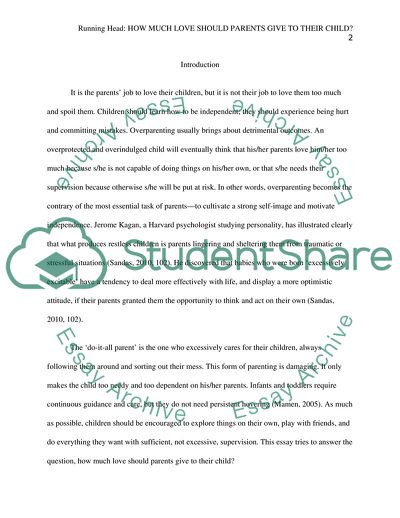Cite this document
(How Much Love Should Parents Give to their Child Coursework Example | Topics and Well Written Essays - 3250 words - 1, n.d.)
How Much Love Should Parents Give to their Child Coursework Example | Topics and Well Written Essays - 3250 words - 1. https://studentshare.org/psychology/1795058-how-much-love-should-parents-give-to-their-child
How Much Love Should Parents Give to their Child Coursework Example | Topics and Well Written Essays - 3250 words - 1. https://studentshare.org/psychology/1795058-how-much-love-should-parents-give-to-their-child
(How Much Love Should Parents Give to Their Child Coursework Example | Topics and Well Written Essays - 3250 Words - 1)
How Much Love Should Parents Give to Their Child Coursework Example | Topics and Well Written Essays - 3250 Words - 1. https://studentshare.org/psychology/1795058-how-much-love-should-parents-give-to-their-child.
How Much Love Should Parents Give to Their Child Coursework Example | Topics and Well Written Essays - 3250 Words - 1. https://studentshare.org/psychology/1795058-how-much-love-should-parents-give-to-their-child.
“How Much Love Should Parents Give to Their Child Coursework Example | Topics and Well Written Essays - 3250 Words - 1”. https://studentshare.org/psychology/1795058-how-much-love-should-parents-give-to-their-child.


